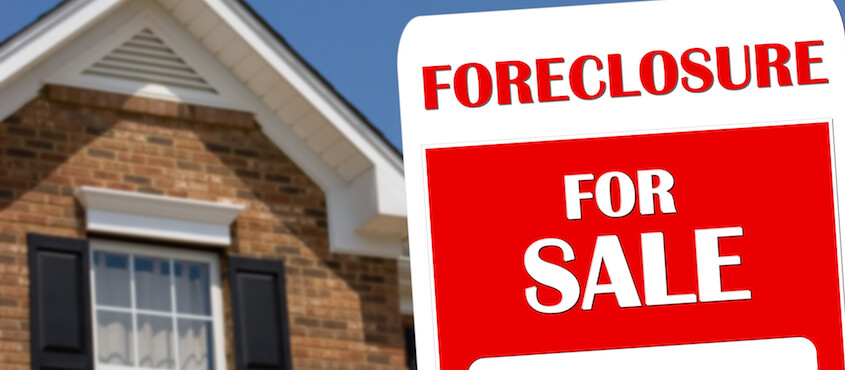There are about 581,490 homes in the US that are currently in foreclosure. Yet, Florida averages slightly higher than the nation when it comes to distressed houses.
These distressed homes, whether by default, auction or bank owned, get overlooked by prospective buyers because of their condition. This is because the repairs, violations, and foreclosure all loom large on the buyers’ minds.
Yet, when you’re selling a home, everyone knows that you need to prepare yourself and your house prior to putting it on the market. Thus, even more, preparation is required when you’re selling a distressed house.
So how can you go about it?
Very easily. Keep reading to learn about the 3 major mistakes you should avoid while selling a distressed house.
Mistakes Distressed Home Sellers Should Avoid
For a successful sale, here are some common mistakes you should avoid.
Don’t Get a Buyer Who Cannot Purchase in Full Cash
Distressed homes or properties are not just normal homes that anyone can buy. If the house did not qualify for mortgage financing, then you as the home seller will need a “cash buyer.”
And this is where you need to be very careful with the claims from your buyer.
Ask buyers for proof of funds. When you look at funds, consider costs of repairs and fixes too. Many buyers change their minds halfway through negotiations when they find out that the cost of repairs overwhelms them.
This is particularly hard for you because you’ve invested time to make the sale and turned away other potential buyers.
So Who Exactly Should You Turn Away?
Examples of people who are not guaranteed cash buyers include those who have stocks or mutual funds or hold a deposit that is yet to mature.
Loan borrowers, refinancers of existing property, retirement account holders, and people who are waiting for a probate court to redistribute money and or assets also fit in this category.
Why so?
Well, these people have no liquid cash to give you. This is because them receiving money is contingent on some future event. As such, you need official proof of funds from them.
A proof of funds must be on an official letterhead of the bank where the money is deposited. It will be furnished with basic details like a current date, name of the account holder and the total corpus available to the account holder.
It could be an original bank statement or an online statement from the bank. A financial statement certified by a loan official or an open equity credit line can also work in this case.
But there’s another lot you also need to worry about. These are overseas buyers.
Be especially wary of overseas buyers or buyers who have cash “stashed” somewhere. Remember, banks are required by federal law to report any cash deposits above $10,000 in their bank accounts.
Don’t Wait Too Long
Sellers usually want to play it cool and not appear desperate to buyers. But that’s not the way to go about it when it’s a distressed house.
Why?
In the case of distressed homed, you’ve got foreclosure looming and other re-possession proceedings to consider. You can’t afford to wait months or worse, years for the house to sell.
Take these instances for example.
If you’ve defaulted on a mortgage payment, you’re already racing the clock towards bank foreclosure. Waiting too long can put you at risk of losing your home to the bank unless you pursue an alternative solution, like a quick cash sale.
Alternatively, you can modify your loans, renegotiate your payment plan, surrender your deed in lieu of foreclosure, rent the property or file for bankruptcy.
If the house is distressed for other reasons such as squatters or tenants, then that will raise additional issues.
For instance, squatters can be problematic as they damage the home which results in further repairs, adding to the price of the property. On the other hand, if you don’t live in the home and leave it vacant, you must keep the safety codes updated.
Many big cities issue fines for code violations to homes that are in bad shape or have safety issues. These violations over time accumulate and before you know it, you owe thousands of dollars in fines which will also drive up the price.
Thus, the best thing to do is to settle on a buyer quickly and settle the negotiations as soon as possible. This will prevent the house from probably losing too much value, in lieu of your personal liabilities.
Consider the Home Value
If you’re considering putting up your property for sale, you may be shocked when an agent or consultant lowers your home value compared to other normal properties in the same area.
Instead of ranting about this, you need to understand home valuation.
A distressed house has a lower value because of the additional cost of repairs, the rapid turn around time needed for sale and the usually uncooperative occupants.
One of the best things you can do in this case is to get the property appraised by a licensed or certified appraiser.
Once the property is appraised, you will also know if you have any additional distress values, like curbside appeals, or any effects of neighborhood distress. These issues can affect the value of your home and its attractiveness to buyers.
Other issues like squatters and safety also drive down the price even further.
What would happen if you skipped this step?
If you skip this step, then you might be setting yourself up for failure by asking an unrealistic price. This will eventually delay your sale since the number one reason most buyers buy distressed homes is the low price.
Distressed homes also drive down the market price of all homes within their neighborhood, causing concerns for everyone over the Fair Market Value. As such, prospective buyers do shop around the neighborhood, looking for a better deal.
Thus, you need to consider all these factors and talk to your appraiser about the area and the state of other distressed homes around you, just to give you a fair idea of market value prices.
With the right price, you can make a quick and painless sale, and the buyers know what they’re getting and what they will have to spend on.
Are You Interested in Selling Your Distressed House? Do It with Confidence
Selling a distressed home is different from a normal home sale. It has complex problems that need additional attention.
Thus, if you need assistance selling your distressed house or you simply need advice, call us today.





























